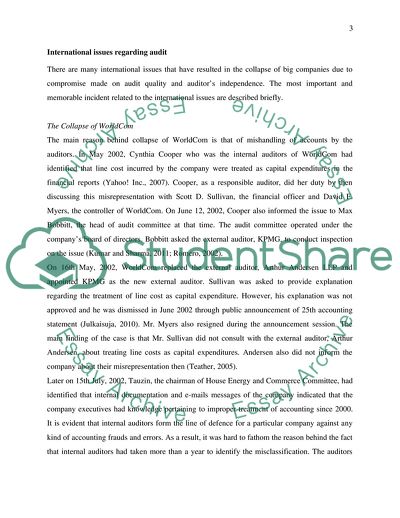Cite this document
(International Issues in Audit Essay Example | Topics and Well Written Essays - 2500 words - 1, n.d.)
International Issues in Audit Essay Example | Topics and Well Written Essays - 2500 words - 1. https://studentshare.org/finance-accounting/1833950-international-issues-in-audit
International Issues in Audit Essay Example | Topics and Well Written Essays - 2500 words - 1. https://studentshare.org/finance-accounting/1833950-international-issues-in-audit
(International Issues in Audit Essay Example | Topics and Well Written Essays - 2500 Words - 1)
International Issues in Audit Essay Example | Topics and Well Written Essays - 2500 Words - 1. https://studentshare.org/finance-accounting/1833950-international-issues-in-audit.
International Issues in Audit Essay Example | Topics and Well Written Essays - 2500 Words - 1. https://studentshare.org/finance-accounting/1833950-international-issues-in-audit.
“International Issues in Audit Essay Example | Topics and Well Written Essays - 2500 Words - 1”. https://studentshare.org/finance-accounting/1833950-international-issues-in-audit.


